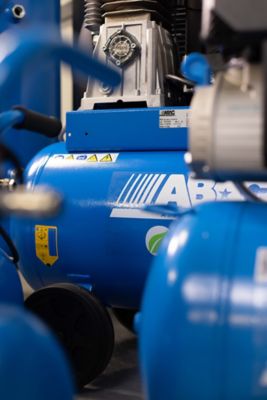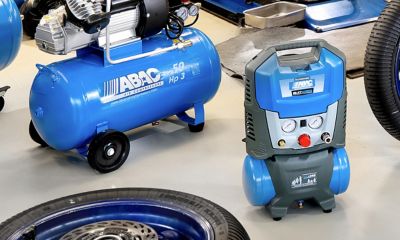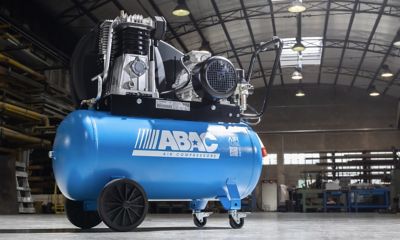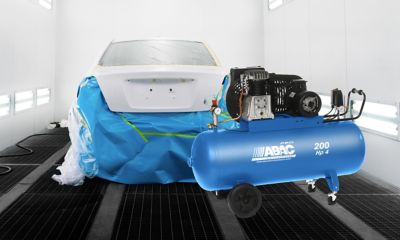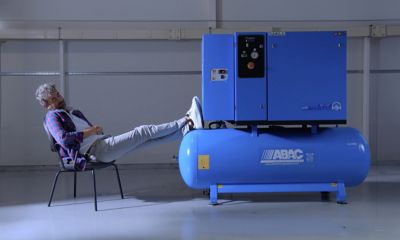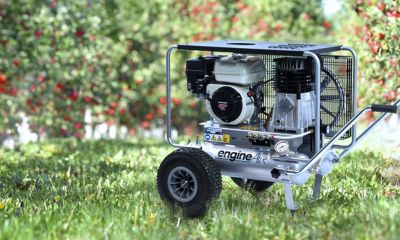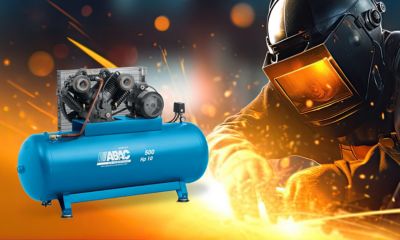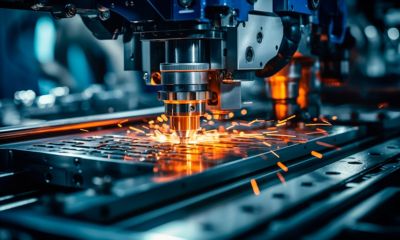Mastering Piston Compressor: A Detailed Overview
Discover the Essentials of Piston Compressors, Features, Technologies and Uses
What is a Reciprocating or Piston Compressor?
A piston compressor, also called a reciprocating piston compressor, is a type of positive displacement compressor. It uses pistons moved by a crankshaft to deliver gases at high pressure. These compressors are the oldest and most common type of industrial compressors, known for their simplicity and reliability.
A piston compressor works by pulling air into a cylinder. Then, the cylinder compresses the air with a moving piston. This process can be broken down into three main stages:
- Intake Stroke: The piston moves downwards, creating a vacuum that allows air to enter the cylinder through the intake valve.
- Compression Stroke: The piston moves upwards, compressing the air in the cylinder. The system then pushes the compressed air through the discharge valve into a storage tank.
- Discharge Stroke: The compressed air is stored in the tank until it is needed for various applications.
Piston Compressor Advantages
Piston compressors come in various sizes and configurations, including oil-lubricated and oil-free versions. The simplicity of their design offers several key advantages:
- Cost-Effective: Piston compressors generally have a lower purchase price compared to other types of compressors.
- Ease of Operation: They are straightforward to operate and maintain, making them a popular choice for many applications.
- Versatility: Air compressors come in different configurations. This allows them to meet specific needs, from small DIY projects and professional to large industrial uses.
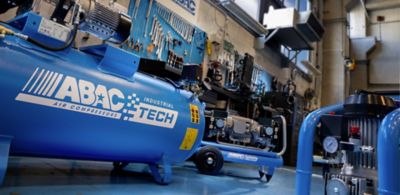
Piston Compressors Features
- High Pressure Output: They can deliver high-pressure air, making them ideal for tasks that require significant force.
- Durability: Built with robust materials, these compressors are designed to withstand harsh working conditions.
- Versatility: Various industries, including automotive, manufacturing, agriculture, medical, food and beverage, and construction.
- Efficiency: Piston compressors operate efficiently, delivering reliable performance with minimal maintenance.
Air Compressor Piston Technologies
- Direct Driven Compressors: These compressors connect the motor directly to the compressor pump. This design is compact and allows for efficient power transfer. They are ideal for applications requiring intermittent use.
- Belt Driven Compressors: These compressors use a belt to transfer power from the motor to the compressor pump. This design allows for better cooling and quieter operation, making them suitable for continuous use in industrial settings.
- Single Stage Compressors: In single stage compressors, air is compressed in one stroke. This makes them good for lower pressure uses. Workshops and professionals commonly use them.
- Double Stage Compressors: These compressors compress air in two stages, allowing for higher pressure output. They are ideal for heavy-duty applications requiring continuous high-pressure air supply.
- Oil-Free Compressors: These compressors do not use oil for lubrication. This makes them perfect for places where clean air is important, like in the food and medical industries.
- Silent Compressors work quietly. They are perfect for environments where noise reduction is crucial, such as in laboratories and offices.
- Medical Compressors: Manufacturers design these compressors for medical use. They provide clean, oil-free air for medical devices and equipment.
- 100% Duty Cycle Compressors: These compressors operate continuously without needing rest periods. You can find the duty cycle by dividing the time the compressor runs by the total cycle time. This result is shown as a percentage. A 100% duty cycle means the compressor can run continuously without overheating or causing excessive wear.
Portable, Stationary, and Vertical Piston Compressors
- Portable Piston Compressors: These compressors are designed for mobility and ease of use. They are compact and lightweight, making them ideal for small-scale applications and tasks that require frequent movement. Portable compressors are commonly used in workshops, garages, and for DIY projects.
- Stationary Piston Compressors: These compressors are larger and more powerful, designed for continuous use in industrial settings. They remain fixed in one location and provide a reliable source of high-pressure air for heavy-duty applications. Stationary compressors are suitable for manufacturing plants, automotive shops, and construction sites.
- Vertical Piston Compressors save space and makes them ideal for environments with limited floor space. Vertical compressors are often used in commercial operations, laboratories, and other settings where space efficiency is important.
Piston Compressors Applications
Many industries use Piston compressors because of their versatility and efficiency:
- Automotive Industry: Used for powering pneumatic tools, inflating tires, and painting vehicles.
- Manufacturing: Essential for operating machinery, powering assembly lines, and providing clean air for production processes.
- Construction: Used for operating jackhammers, nail guns, and other pneumatic tools.
- Agriculture: Used for tasks such as spraying crops, powering farm equipment, and maintaining machinery.
- Food and Beverage: Crucial for maintaining clean and safe air in production processes, packaging, and storage.
- Industrial: Suitable for heavy-duty tasks, providing reliable performance in manufacturing plants and other industrial settings.
- Tradespeople: Widely used by professionals across various trades for their reliability and efficiency in powering tools and equipment.
- Dental and Medical: Essential to provide clean and pure air to maintain safe and hygienic conditions.
Maintenance Requirements for Piston Compressors
Proper maintenance is crucial to ensure the longevity and optimal performance of piston compressors. Here are some key maintenance requirements:
- Regular Inspection: Conduct regular inspections to check for any signs of wear and tear, leaks, or unusual noises. This helps in identifying potential issues before they become major problems
- Oil Changes: For compressors that use oil, it is important to change the oil regularly. This ensures the machine operates efficiently and avoids overheating. Follow the manufacturer's recommendations for oil change intervals
- Air Filter Replacement: Replace the air filters periodically to prevent dust and debris from entering the compressor. Clean filters ensure efficient airflow and reduce the risk of damage to internal components
- Belt Tension and Condition: For belt-driven compressors, check the tension and condition of the belts regularly. Replace worn or damaged belts to maintain proper power transfer and prevent slippage
- Drain Condensate: Regularly drain the condensate from the air receiver tank. This helps prevent moisture buildup. Moisture can cause corrosion and lower compressor's efficiency.
- Check Safety Valves: Ensure that safety valves are functioning correctly to prevent over-pressurization and potential accidents. Test the safety valves periodically as part of routine maintenance.
- Inspect Hoses and Connections: Check all hoses and connections for signs of wear, leaks, or damage. Replace any faulty components to maintain a secure and efficient air delivery system.
- Monitor Operating Temperature: Keep an eye on the operating temperature of the compressor. Overheating can cause significant damage, so ensure that the cooling system is functioning properly.
- Lubrication: Ensure that all moving parts are adequately lubricated to reduce friction and wear. Follow the manufacturer's guidelines for lubrication intervals and types of lubricants to use.
- Professional Servicing: Schedule regular professional servicing to perform thorough inspections, adjustments, and replacements as needed. Professional technicians can identify and address issues that may not be apparent during routine maintenance.

